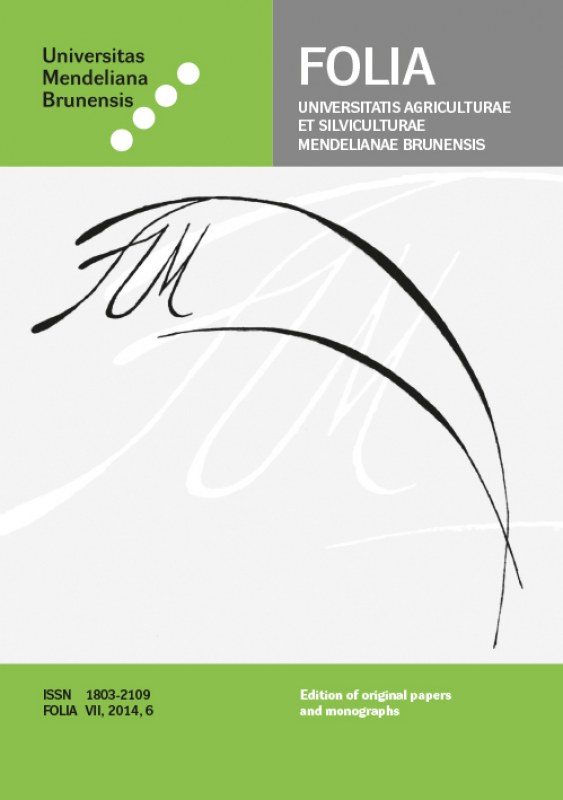
DOI: 10.11118/978-80-7509-881-8-0161
Southern Africa: The Forgotten Cradle of Psychoactive Healing Plants
- J. F. Sobiecki
This paper summarizes and contextualises the history of psychoactive plant research in South Africa as well as the recent advances made in the field. Hypothesized mechanisms by which African psychoactive plants heal the mind are highlighted. Key areas requiring further research include: the indigenous cultural understandings of mental illness and psychoactive plants, the role of psychoactive plants in the spiritual practices of southern African traditional healers, the influence of various psychoactive plant species used in traditional formulas, the use of African psychoactive plants in treating drug addiction and the folklore and mythology relating to indigenous psychoactive plants.
Keywords: psychoactive healing plants, South Africa
pages: 161-165, Published: 2014, online: 2022
References
- Beckley Foundation. Retrieved August 5, 2014 from http://www.beckleyfoundation.org/.
- Croucamp, A. (2001). Divination: Superstition or technology? Witwatersrand University: Graduate School for Humanities and Social Sciences. (Unpublished colloquium paper).
- De Smet, PAGM (1996). Some ethnopharmacological notes on African hallucinogens. J. Ethnopharmacol, 50: 141-146.
 Go to original source...
Go to original source... - Hirst, M. (2005). Dreams and medicines: The perspective of Xhosa diviners and novices in the Eastern Cape, South Africa. Indo. Pac. J. Phen., 5(2), 1-22.
 Go to original source...
Go to original source... - Jauregui, X., Clavo, Z. M., Jovel, E. M. & Pardo-de-Santayana, M. (2011). "Plantas con madre": Plants that teach and guide in the shamanic initiation process in the East-Central Peruvian Amazon. Ethnopharmacol, 134, 739-752.
 Go to original source...
Go to original source... - Lambrecht, I. (2014). Sangoma trance states. Auckland, New Zealand: AM Publishing.
- Liengme, C. A. (1983). A survey of ethnobotanical research in South Africa. Bothalia, 14, (3 and 4), 621-629.
 Go to original source...
Go to original source... - Mitchell, P. & Hudson, A. (2004). Psychoactive plants and southern African hunter-gatherers: A review of the evidence. S. Afr. Hum., 16, 39-57.
- Multidisciplinary Association for Psychedelic Research (MAPS). Retrieved June 18, 2014 from http://www.maps.org.
- Sobiecki, J. F. (2002). A preliminary inventory of plants used for psychoactive purposes in southern African healing traditions. T. Roy. Soc. S. Africa., 57(1 and 2), 1-24.
 Go to original source...
Go to original source... - Sobiecki, J. F. (2008). A review of plants used in divination in southern Africa and their psychoactive effects. S. Afr. Hum., 20, 333-351.
- Sobiecki, J. F. (2012). Psychoactive ubulawu spiritual medicines and healing dynamics in the initiation process of Southern Bantu diviners. J. Psychoactive Drugs, 44(3), 1-8.
 Go to original source...
Go to original source... - Sobiecki, J. F. (2014a). The intersection of culture and science in South African traditional medicine. Indo. Pac. J. Phen., 14(1), 1-11.
 Go to original source...
Go to original source... - Sobiecki, J. F. (2014b). Psychoactive plants: A neglected area of ethnobotanical research in Southern Africa (Review). Ethno. Med., 8(2), 165-172.
 Go to original source...
Go to original source... - van Wyk, B. E. & Gericke, N. (2000). People's plants. Pretoria, South Africa: Briza Publishers.
- Werry, J. S. & Aman, M. G. 1993. Practitioner's guide to psychoactive drugs for children and adolescents. New York, USA: Springer.
 Go to original source...
Go to original source... - Winkelman, M. & Dobkin De Rios, M. (1989). Psychoactive properties of Kung Bushmen medicine plants. J .Psychoactive Drugs, 21, 51-59.
 Go to original source...
Go to original source...


